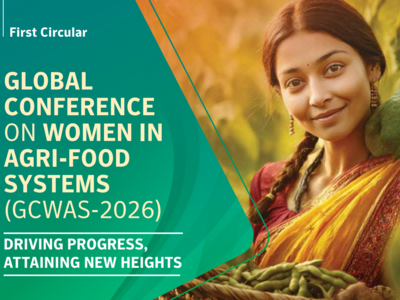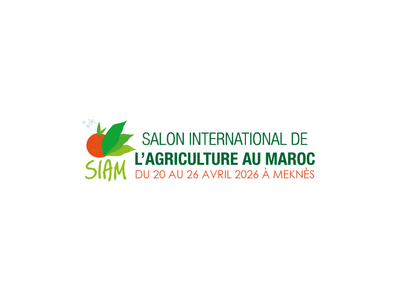TROPENTAG
18-20 September 2019. Kassel. The annual interdisciplinary conference on research in tropical and subtropical agriculture, natural resource management and rural development (TROPENTAG) was jointly organised by the universities of Berlin, Bonn, Göttingen, Hohenheim, Kassel-Witzenhausen, ZALF e.V., Ghent University (Belgium), Czech University of Life Sciences Prague (Czech Republic), BOKU Vienna (Austria) and the Council for Tropical and Subtropical Research (ATSAF e.V) in co-operation with the GIZ Advisory Service on Agricultural Research for Development (BEAF).
Tropentag 2019 summarized recent disciplinary and interdisciplinary approaches that address these gaps and traps from various angels, with different methodological approaches and regional foci. Every year another CGIAR center or CGIAR Research Program receives special attention. ICARDA was this year the main guest shedding light on its mandate and activities . This year the Tropentag conference was attended by 730 participants.
Tropentag 2019 was organised by the Universities of Kassel and Göttingen, Germany. Students, Ph.D. students, scientists, extension workers, decision makers, politicians and practical farmers, interested and engaged in agricultural research and rural development in transition and developing countries were invited to participate and to contribute.
Target of the conference
The Tropentag is a development-oriented and interdisciplinary conference. It addresses issues of resource management, environment, agriculture, forestry, fisheries, food, nutrition and related sciences in the context of rural development, sustainable resource use and poverty alleviation worldwide.
The Tropentag 2019 conference theme: Filling gaps and removing traps for sustainable resources development
Agriculture and forestry provide the livelihood of 3.6 billion people worldwide, mostly in sub-/tropical regions. Global change phenomena, notably population growth, rural-to-urban migration, and climate change with their socio-political, economic and ecological consequences enhance pressure on natural resources. Science-based solutions for the sustainable provision of food and non-food commodities through agriculture and forestry are manifold and address ecological, technical, social, economic and political aspects.
But there are still obstacles to overcome. Gaps – in education, responsibilities and incomes between women and men, in marketing opportunities between rural and urban farmers, between potential and actual crop yields and livestock performances are just a few examples that need to be addressed and resolved. Traps – such as neglect of relevant stakeholders, incomplete risk assessment, short-lived innovation testing, and fragmental systems assessment need to be identified and avoided.
Discussions in plenary and thematic sessions, guided poster tours and workshops provide new ideas to enhance the scientific and practical success in promoting sustainable resources management in sub-/tropical regions.
ICARDA presence at the Tropentag 2019 conference
Wednesday, 18/09/2019
The purpose of this workshop was to reflect about the challenges of agricultural innovation transfer and scaling of innovations. The workshop dealt with the challenging question of the “adoption gap” in small scale agricultural production systems. Research of innovative agricultural technologies in rural areas has been successful. However, the adoption of these innovative farming techniques remains low.
The “Mind the Gap” project in Tunisia has been using Randomized Control Trials (RCT) with 700 farmer households to see which extension approach is the most effective regarding the adoption of innovative technologies. The Workshop focused on approach and results of the project and stimulated the discussion and reflection concerning successful innovation transfer.
Presentation of the research project (Mind the Gap), which has been testing different models of technology transfer. There was a short film showing the project approach and some activities as well as three PPT presentations with discussions. Topics of the PPT are:
- Baseline, Follow up and gender survey results - by Boubaker Dhehibi
- Project activities and results - by Udo Ruediger
- Geoinformatics Options by Context (GeOC) tool - by Bao Quang Le
Workshop 10: Funding gaps and traps in agricultural research for development
The purpose of the workshop was to reflect on how donors can support innovators and researchers to focus on workable solutions to real problems and how to bring plausible pathways to scale: turning aspirations into outcomes. The workshop highlighted 2 donors initiatives and their expectations towards agricultural research for development. Research results and innovation need to impact on development (among others: upscaling, food security and safety, mitigation and adaptation to climate change, youth and job creation, agribusiness, etc.).
- Introduction and panel moderation by Margret Thalwitz, Chairperson, ICARDA board of trustees
- The PRIMA Initiative (2018-2028) by Dr. Mohamed WAGEIH (Programme Officer, PRIMA secretariat Barcelona)
- BMEL-Call for proposals: “Food environments for improved nutrition” by Mr. Sigfried Harrer, Directorate “International Cooperation and World Food Affairs” Federal Ministry for Food and Agriculture (BMEL)
- Introduction ot ICARDA: Margret Thalwitz, Chairperson, ICARDA board of trustees
- Sustainable Food System and Job Creation under Water Scarcity by Jacques Wery, Deputy Director General and Director of Research, ICARDA
Agri-food systems in the DryArc region (between Southern Europe, North Africa, Sub-Saharan Africa and China) face a complex combination of challenges including water scarcity, rainfall variability, increased temperatures, land degradation, desertification, high population growth and migration, widespread poverty, malnutrition and unemployment. This region is expected to be among those worst affected by climate change, where reduced agricultural productivity, increased poverty, higher dependence on food imports, and increased competition for scarce natural resources will ultimately threaten the viability of agriculture and rural livelihoods.
Oral thematic sessions II Cereals and pulses sustainable agri food systems under climate change
Presentations in this session showed how current research conducted by ICARDA and its partners in the CWANA region can support a transition towards nutrition-sensitive and climate smart cereal-based agri-food systems under irrigated and rainfed conditions. the session showed in particular how plant breeding, agronomy, livestock feeding and systems analysis can be combined to support this diversification and sustainable intensification of cereal-based agri-food systems.
In dry regions food systems are largely driven by cereals, especially bread wheat. Durum wheat is also a major food crop in many parts of the Central and West Asia and North Africa (CWANA) region. Barley has a specific place as it both contributes to human food (grain and malt) and livestock feed (grain, forage and straw), especially under conditions of water scarcity and low input systems. In response to increasing imports in most of the countries of the region, food policies have been focusing on bread wheat, leading to both increasing areas and yield.
A large part of this wheat expansion and intensification is occurring under irrigated agriculture while many countries in the MENA region are already above the threshold level for the use of renewable resources. At the same time the production of other crops such as pulses and forages are stagnating or declining, while they are increasingly recognized as smart foods for human and livestock nutrition. These crops are also essential for adaptation to climate change, improvement of soil fertility, management of weeds, and breaking the pest and diseases cycle of cereal-based cropping systems.
Speakers:
- Jacques Wery – Deputy Director General - Research, ICARDA
- Yigezu Yigezu Atnafe – Senior Agricultural Economist, Social, Economy & Policy Research
- Shiv Kumar – Agricultural Livelihood Systems Expert, Social, Economy & Policy Research
- Andrea Visioni – Associate Scientist - Barley Breeding, Breeding programs (Wheat Barley Legumes)
- Michael Baum – BCI Program and Morocco Platform Director, Office of the Program Director
- Barbara Rischkowsky – Director - Resilient Agricultural Livelihood Systems Program, Office of the Program Director



